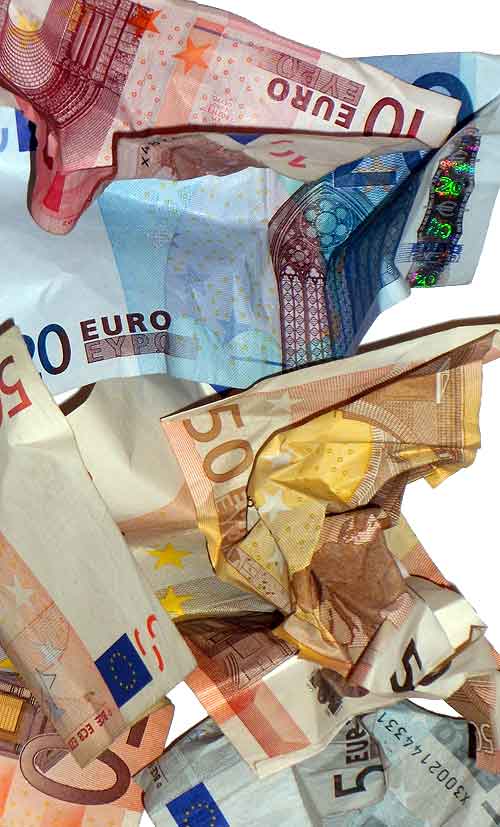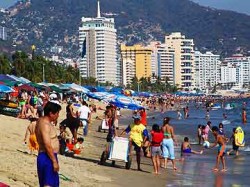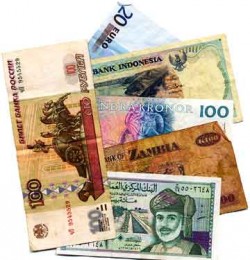
Some years ago, before Bulgaria was part of the EU, Dodie B. and two male friends visited one of that country’s small port towns. She had a $100 bill with which she hoped to buy euros. (Not a smart strategy, exchanging one currency for another currency in a country that uses neither, but that’s not the point here.)
The first two foreign-currency-exchange booths Dodie tried refused. They would sell her only Bulgarian money for her US dollars. Eventually she found a closed money exchange kiosk where a man was changing money on the street in front of the shop. She asked him if he would give her euros for US dollars. He said yes.
Dodie’s two friends wandered a bit away when she asked the rate. He quoted a price and she thought to herself, wow, great rate, and agreed. He counted out the euros for her and put them, folded, on top of his wallet. She held onto her $100 bill. They joked and bantered a bit, until Dodie finally said hey, are you going to give me the euros or not? She started to put her bill into her pocket.
Just then there was shouting. “No, no money change on the street!” She grabbed the folded money and the man took her bill. Another man, large and intimidating, was suddenly looming over her, shouting that she cannot change money on the street. She walked toward her friends and the goon followed, uncomfortably close to her. She shoved the cash deep into her pocket and walked faster. When she reached her friends the thug turned and left.
The friends asked what took her so long and she explained, shaken but happy to have accomplished her goal. She took the cash out of her pocket and saw right away that she’d been scammed. The pile was made of one 5-euro note wrapped around a pile of worthless old Yugoslavian bills, taped together. Of course the goon was gone, and so was the “money changer.”
Her friends wanted to go to the police, but Dodie was afraid to, since changing money on the street is a crime. Dodie still has the bundle of bills and promised to send me a photo of it, but I got tired of waiting.
The critically-timed loud and scary threat by a third party is typical in many scams, and is designed to conclude the deal in a rush and quickly separate the vic from the perp. The interrupting third party always seems to be an uninvolved stranger, or a pseudo cop as in this example. But he’s always part of the game. Note also the con man’s intentional establishment of a friendly rapport with his mark—that’s the CONfidence-building that gives the con artist his title.



